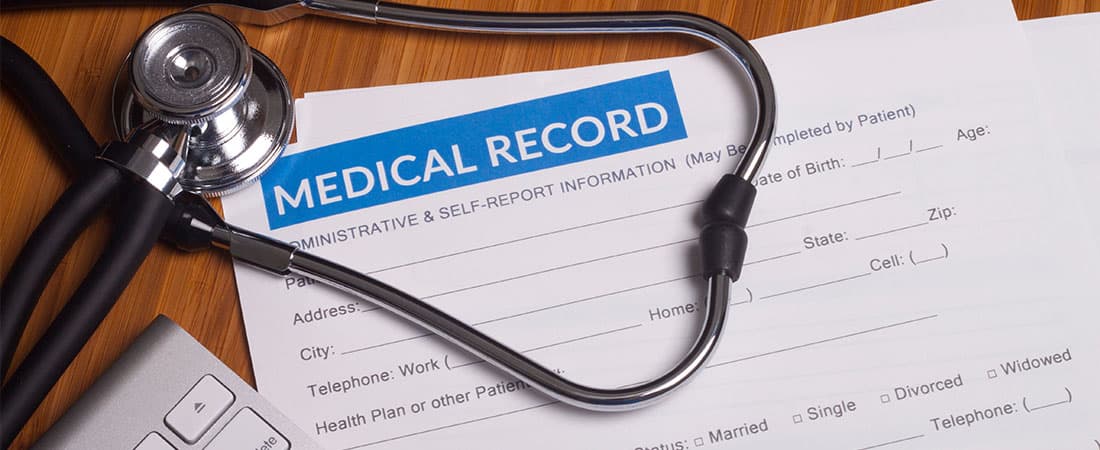
Medical Records
What Are Medical Records in Florida?
Medical records are important documents used to track a person’s health history. They are kept by doctors and other healthcare professionals, such as nurses or therapists, and provide a detailed look at the care received by each individual. The amount and type of information, as well as the level of detail, found in a person’s medical record, may differ depending on the patient. In addition, these records help keep patients informed about their health, allowing them to make informed decisions about their care.
Types of Medical Records
The three types of medical records are patient health records, clinical notes, and administrative documents. Patient health records contain information about a patient’s medical history, diagnosis, treatments, medications, allergies, test results, lab results, immunizations, x-rays, and other medical images. Clinical notes provide summaries of physician visits or hospital stays, with detailed accounts of the conversations that took place between the doctor and patient. Administrative documents include forms for office visits, insurance forms, and billing information.
What Should Be in a Personal Medical Record?
A personal medical record should include all relevant information about a person’s health, including allergies and sensitivities, current medications, immunization records, previous diagnoses and treatments, lab results, and any other data that could help provide insight into a patient’s overall health. A medical record helps collect all your data in one place to ensure all your doctors across different hospitals have the right information and to provide a detailed record of an individual’s health history, treatment, and care.
These records also help providers make informed decisions when caring for their patients. Additionally, they serve as a form of communication between different healthcare providers who may be involved in the patient’s care. All of this information should be kept up to date to ensure the best possible care for each individual.
Electronic Medical Records
Electronic Medical Records (EMR) help make healthcare more efficient and reliable. They store patient information in a secure, easily accessible format that can be shared with other medical providers when needed. By using EMRs, doctors can accurately track each individual’s progress, reducing errors caused by miscommunication or paperwork confusion. It also allows for faster communication between staff members, improving the overall quality of care. The use of EMRs is important for providing comprehensive, effective healthcare and ensuring that patients receive the best possible care.
Patient Confidentiality
In Florida, medical records are considered confidential and only accessible to authorized individuals. Healthcare workers are mandated by law and by professional standards to protect patient confidentiality. This means that they cannot be shared without permission from the patient or someone with legal authority. A patient generally must give written consent to the release of these records. The Privacy Rule applies to all forms of an individual’s protected health information (PHI), including oral, written, or electronic. The laws around confidentiality of medical information in Florida ensure that everyone’s health information is kept secure.
Who Can Access My Medical Record?
In Florida, you have the right to access your medical records. By law, only the adult (age 18 or older) patient or a legally designated representative has the authority to release the information contained in a medical record about them. Generally, only you, or someone authorized by you such as a healthcare provider, can view and obtain copies of your medical information. You may need to fill out paperwork or sign a release form to get access. It is against the law for any healthcare provider to refuse to provide a copy of the complete medical records to the subject patient.
How To Get Medical Records in Florida?
Do you need to access your medical records in Florida? It’s easy! All you have to do is request them from your healthcare provider or the facility where you received treatment. You’ll need to fill out a release form, which your doctor or clinic can provide. Once they process the request, you should receive your records within a few days. Make sure to keep a copy for yourself and be mindful of any costs associated with the request. Remember, you’re entitled to view and obtain copies of your medical records at no cost.
How Long Must Physicians Retain Patient Medical Records?
Physicians must keep medical records for at least five years after the last date of service or until a patient reaches age 18 (whichever is longer). This means that if a patient is 17 and they receive services from a physician in Florida, the physician would need to retain those records until the patient turns 22. Keeping accurate and up-to-date medical records is important for providing quality health care.
Florida Medical Records Laws
Various state and federal laws allow patients to have direct access to their medical record information, either by reviewing the record, obtaining copies, or receiving a summary of their care. Florida has specific laws that protect medical records. They ensure that only authorized people can access them and that they are kept secure. This means your health information is safe, confidential, and private. It also means that you have the right to know who has seen it and what it was used for.
The medical record is an important part of a patient’s health care. In Florida, medical records are governed by the Health Insurance Portability and Accountability Act (HIPAA), which sets out the rights of patients to access their medical records. HIPAA also outlines the rules that govern how healthcare providers must store, use and disclose these records. This act provides the following services:
- Reduce any healthcare fraud or abuse
- Creates and mandates the standard for health care information on electronic billing or any other processes
- Protects and establishes confidentiality standards for protected health information, documentation, and records
Furthermore, Florida has specific laws that protect patients’ rights to access their medical information. As such, Floridians need to understand their right to access and control their medical records to ensure they receive quality healthcare. Knowing these laws helps you understand how your medical data is being managed and why it’s so important to keep it secure.





